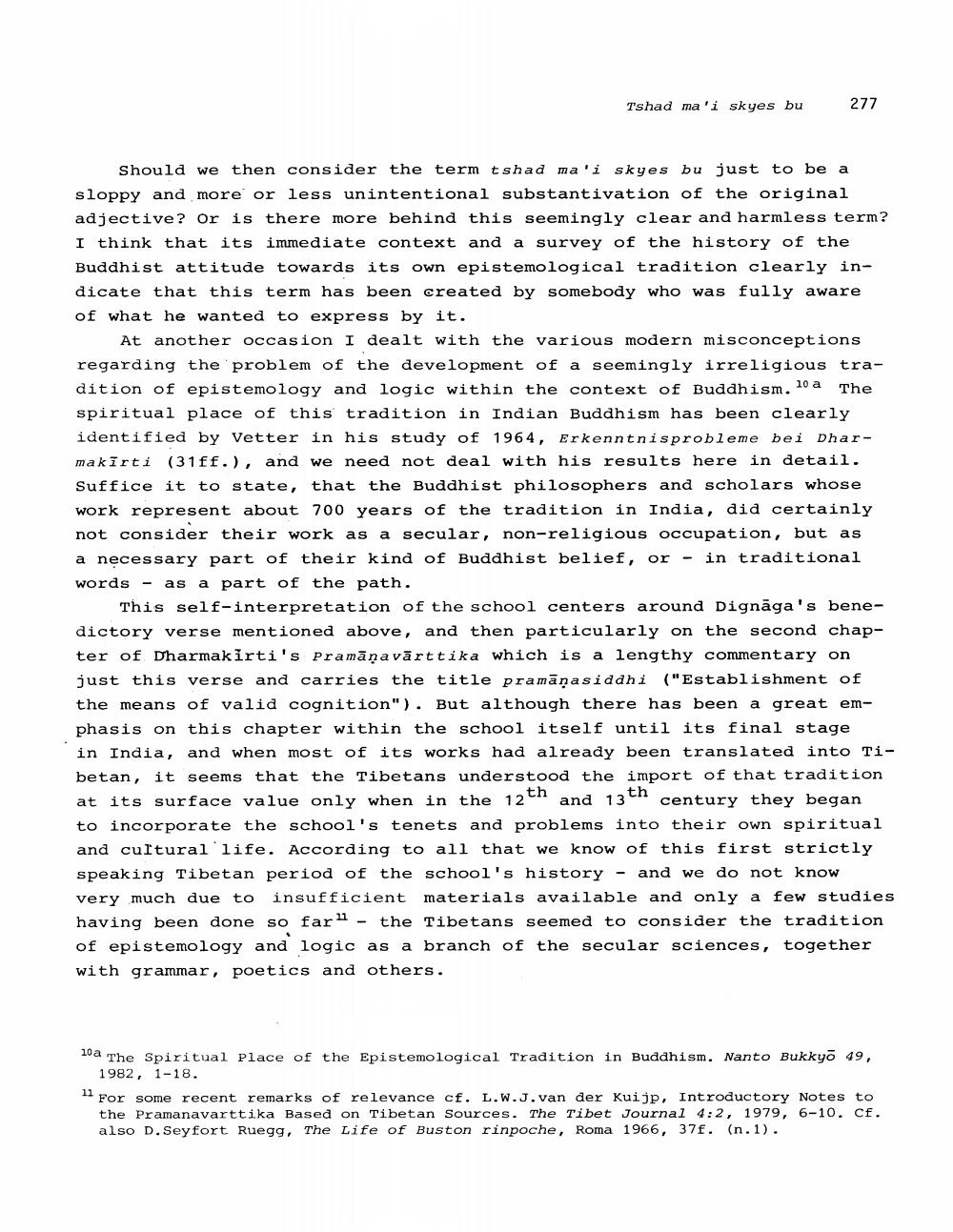Book Title: Meaning And Historical Significance Of Term Author(s): Ernst Steinkellner Publisher: Ernst Steinkellner View full book textPage 3
________________ Tshad ma'i skyes bu 277 Should we then consider the term tshad ma'i skyes bu just to be a sloppy and more or less unintentional substantivation of the original adjective? Or is there more behind this seemingly clear and harmless term? I think that its immediate context and a survey of the history of the Buddhist attitude towards its own epistemological tradition clearly indicate that this term has been created by somebody who was fully aware of what he wanted to express by it. At another occasion I dealt with the various modern misconceptions regarding the problem of the development of a seemingly irreligious tradition of epistemology and logic within the context of Buddhism. 10 a The spiritual place of this tradition in Indian Buddhism has been clearly identified by Vetter in his study of 1964, Erkenntnisprobleme bei Dharmakīrti (31ff.), and we need not deal with his results here in detail. Suffice it to state, that the Buddhist philosophers and scholars whose work represent about 700 years of the tradition in India, did certainly not consider their work as a secular, non-religious occupation, but as a necessary part of their kind of Buddhist belief, or - in traditional words - as a part of the path. This self-interpretation of the school centers around Dignāga's benedictory verse mentioned above, and then particularly on the second chapter of Dharmakirti's Pramāņa vārttika which is a lengthy commentary on just this verse and carries the title pramāṇasiddhi ("Establishment of the means of valid cognition"). But although there has been a great emphasis on this chapter within the school itself until its final stage in India, and when most of its works had already been translated into Tibetan, it seems that the Tibetans understood the import of that tradition at its surface value only when in the 12 and 13" century they began to incorporate the school's tenets and problems into their own spiritual and cultural life. According to all that we know of this first strictly speaking Tibetan period of the school's history - and we do not know very much due to insufficient materials available and only a few studies having been done so far" - the Tibetans seemed to consider the tradition of epistemology and logic as a branch of the secular sciences, together with grammar, poetics and others. 10a The Spiritual Place of the Epistemological Tradition in Buddhism. Nanto Bukkyo 49, 1982, 1-18. For some recent remarks of relevance cf. L.W.J. van der Kuijp, Introductory Notes to the Pramanavarttika Based on Tibetan Sources. The Tibet Journal 4:2, 1979, 6-10. Cf. also D. Seyfort Ruegg, The Life of Buston rinpoche, Roma 1966, 37f. (n.1).Page Navigation
1 2 3 4 5 6 7 8 9 10 11
